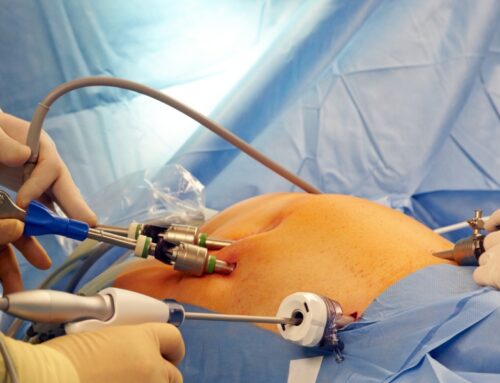Hiatal Hernia and Acid Reflux: How They’re Connected
If you frequently experience acid reflux, heartburn, or regurgitation, a hiatal hernia might be the underlying cause. Many people with GERD (Gastroesophageal Reflux Disease) also have a hiatal hernia, but not everyone realizes the connection. In this blog, we’ll explore how hiatal hernias contribute to acid reflux and the best treatment options available.
For expert care, consult Dr. Abhijit Gotkhinde, a leading Hernia Specialist in Pune, specializing in hiatal hernia treatment with advanced laparoscopic techniques.
What is a Hiatal Hernia?
A hiatal hernia occurs when the upper part of the stomach bulges through the diaphragm into the chest cavity. The diaphragm normally has a small opening (hiatus) that allows the esophagus to pass through, but when this opening weakens or stretches, the stomach can push upward, leading to a hernia.
Types of Hiatal Hernias:
-
Sliding Hiatal Hernia (Type I) – The most common type, where the stomach and esophagus slide in and out of the chest.
-
Paraesophageal Hernia (Type II-IV) – A more severe form where part of the stomach squeezes beside the esophagus, posing a risk of strangulation.
The Link Between Hiatal Hernia and Acid Reflux
The lower esophageal sphincter (LES) is a muscular valve that prevents stomach acid from flowing back into the esophagus. A hiatal hernia can weaken the LES, leading to:
- Increased acid reflux – The hernia disrupts the valve mechanism, allowing stomach acid to escape.
- Chronic heartburn – Persistent burning sensation in the chest due to acid irritation.
- Regurgitation – Sour or bitter-tasting fluid backing up into the throat.
- Difficulty swallowing – Hernia-related pressure on the esophagus.
Symptoms of Hiatal Hernia & Acid Reflux:
✔ Frequent heartburn
✔ Chest pain mimicking heart issues
✔ Bloating and belching
✔ Nighttime coughing or choking
✔ Bad breath due to acid reflux
Diagnosis and Treatment Options
If you suspect a hiatal hernia, consult a hernia specialist for proper diagnosis. Tests may include:
- Endoscopy – A camera examines the esophagus and stomach.
- Barium Swallow X-ray – Highlights the hernia in imaging.
- Esophageal Manometry – Measures LES pressure.
Treatment Approaches:
1. Lifestyle Modifications
- Avoid large meals before bedtime.
- Elevate the head of your bed.
- Reduce acidic, spicy, and fatty foods.
- Quit smoking and limit alcohol.
2. Medications
- Antacids – Neutralize stomach acid.
- H2 Blockers & PPIs – Reduce acid production.
3. Surgical Treatment (If Needed)
For severe or persistent cases, laparoscopic hiatal hernia repair may be recommended. This minimally invasive surgery:
- Pulls the stomach back into place.
- Tightens the diaphragm opening.
- May include fundoplication to reinforce the LES.
Book a Consultation Today!
Don’t let acid reflux control your life. Visit Dr. Abhijit Gotkhinde, the leading Hiatal Hernia Surgeon in Pune, for expert diagnosis and treatment.
Understanding the connection between hiatal hernia and acid reflux is crucial for effective treatment. While lifestyle changes and medications help, severe cases may require surgical intervention. If you’re in Pune, consult Dr. Abhijit Gotkhinde for specialized hiatal hernia treatment and regain your digestive health.




